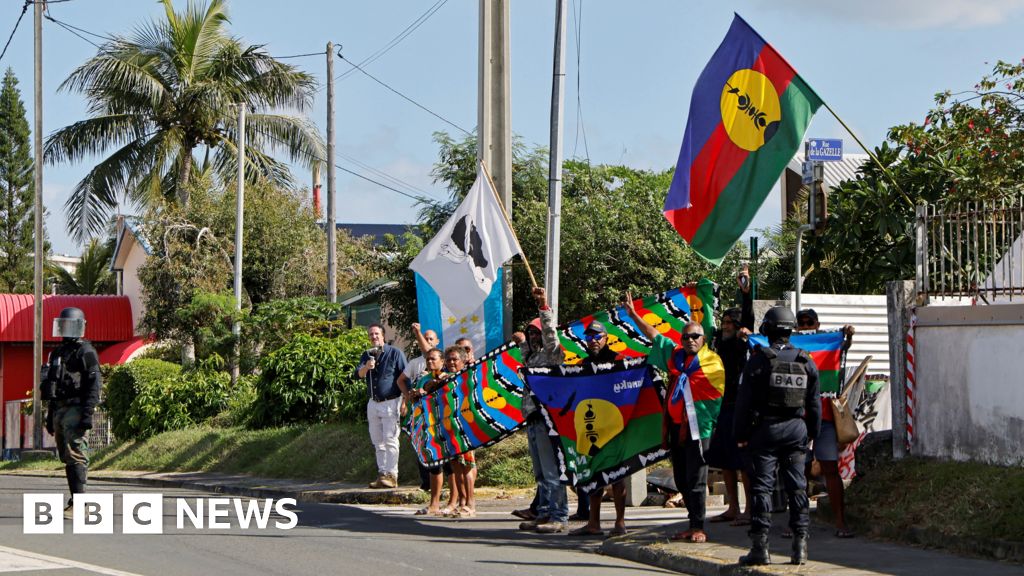President Emmanuel Macron says he will not force through a controversial voting reform in the French Pacific territory of New Caledonia following deadly rioting.
Speaking on a visit to the main island, Mr Macron said local leaders should engage in dialogue to find an alternative agreement for the archipelago’s future.
Six people including two police officers have been killed and hundreds more wounded in riots, looting and arson.
Currently, voting in the territory is restricted to indigenous Kanaks and those who arrived from France before 1998.
The planned reform would see more French residents – including any who have been in New Caledonia for at least 10 years – able to vote.
Many Kanaks – who make up about 40% of the population – fear this would dilute their political voice and make any future independence referendum harder to achieve.
“I have pledged that this reform will not pass today in the current context,” Mr Macron said.
“We will allow some weeks to allow a calming of tensions and resumption of of dialogue to find a broad accord” among all parties, he added, saying he would review the situation in a month.
However Mr Macron insisted that the result of the last independence referendum, in which residents voted to remain part of France, could not be called into question.
New Caledonia has held four referendums on independence. The first two showed slim majorities for remaining part of France. The third was boycotted by pro-independence parties after the authorities refused to postpone the vote due to the Covid epidemic.
During his trip, Mr Macron had meetings with New Caledonian pro- and anti-independence leaders.
If the two sides were able to reach a new deal, the territory could then vote to adopt it in a referendum, he said.
Under the 1998 Nouméa Accord, France agreed to give New Caledonia – a group of islands between Australia and Fiji that became a French territory in the 19th Century – more political autonomy and to limit voting in provincial and assembly elections to those who were residents then.
More than 40,000 French nationals have moved to New Caledonia since.
Last week, the National Assembly in Paris proposed granting voting rights to French residents who had lived in the territory for 10 years, sparking a violent reaction.
The unrest has caused hundreds of millions of dollars worth of damage. None of the six people killed were shot by French security forces, French prosecutors say.
A state of emergency would be lifted when all the protesters’ barricades had been dismantled, Mr Macron added. He described the violence as an “unprecedented insurrection movement” that no-one saw coming.
A 3,000-strong force deployed from France would remain in the territory including during the Paris Summer Olympics if needed, he said.
The airport in Nouméa, New Caledonia’s capital, remains closed to commercial flights.
Military flights airlifted about 300 Australian and 50 New Zealand holidaymakers out of the territory. They reported witnessing arson and looting and experiencing food shortages.

